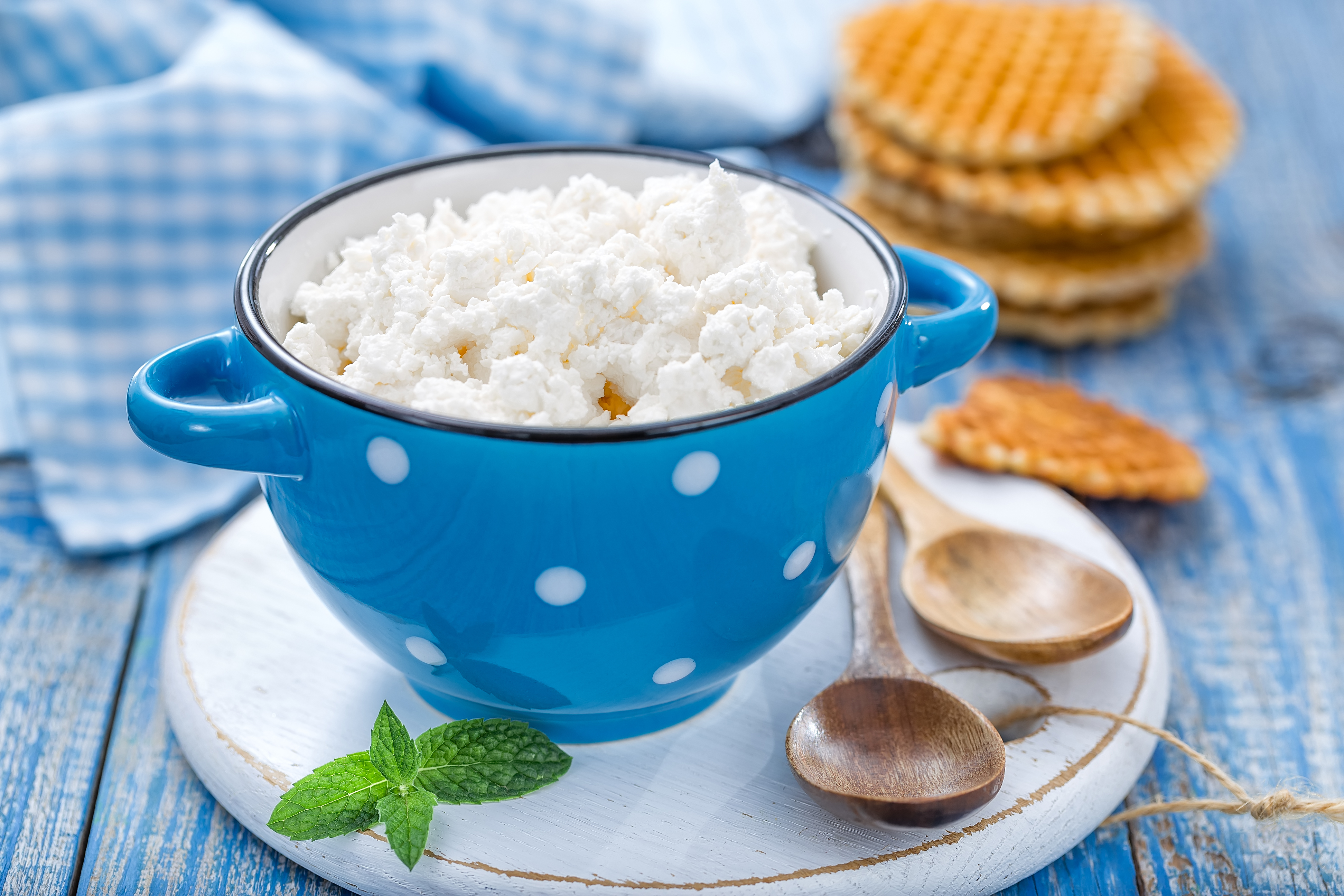20 Foods, Habits and Environments To Avoid If You Have Arthritis
Arthritis, a condition characterized by inflammation of the joints, affects millions worldwide, causing pain and limiting mobility. While many are familiar with common triggers, such as age and genetics, there are numerous hidden culprits that can exacerbate arthritis symptoms. Understanding these lesser-known factors is crucial for those seeking relief and improved quality of life. This comprehensive guide delves into 20 unexpected elements that can worsen arthritis symptoms and offers insights into what to avoid for effective symptom management. By exploring each factor, readers will gain a deeper understanding of how to navigate their arthritis journey with informed choices.
1. Dietary Nightshades - The Inflammatory Connection

Nightshade vegetables, such as tomatoes, potatoes, eggplants, and peppers, are often staples in many diets. However, for some individuals with arthritis, these foods may contribute to increased inflammation. Nightshades contain alkaloids, which can irritate the gut and potentially exacerbate joint pain. While not everyone with arthritis will experience adverse effects, those who suspect a connection might consider an elimination diet to observe changes in symptoms. Understanding the role of nightshades in one's diet can empower individuals to make informed dietary choices, potentially reducing inflammation and alleviating arthritis discomfort.
2. Processed Sugars - Sweetness with a Bitter Effect

Processed sugars are prevalent in many foods and beverages, but their impact on arthritis goes beyond just empty calories. Consuming high amounts of sugar can lead to the release of pro-inflammatory cytokines, which exacerbate joint inflammation. Additionally, sugar contributes to weight gain, placing extra stress on already burdened joints. Reducing sugar intake can be a powerful step in managing arthritis symptoms. Opting for natural sweeteners or sugar alternatives, such as stevia or monk fruit, can help satisfy sweet cravings without triggering inflammation, offering a simple yet effective dietary adjustment.
3. Gluten - A Potential Agitator

Gluten, a protein found in wheat, barley, and rye, is a known culprit for individuals with celiac disease. However, some people with arthritis may also experience heightened symptoms due to gluten sensitivity. While the scientific community continues to explore the connection between gluten and arthritis, anecdotal evidence suggests that a gluten-free diet can offer relief for some. Those with arthritis who suspect gluten as a trigger might benefit from consulting a healthcare professional to explore testing for sensitivities and considering a trial elimination diet to assess its impact on their symptoms.
4. Dairy Products - An Unexpected Trigger

Dairy products, rich in calcium and vitamin D, are often recommended for bone health. Yet, for some individuals with arthritis, dairy can be a source of inflammation. The proteins in dairy, particularly casein, may trigger an immune response, leading to increased joint pain. Exploring dairy alternatives, such as almond milk or coconut yogurt, can provide essential nutrients without the inflammatory effects. By experimenting with dairy-free options, individuals with arthritis can determine whether reducing or eliminating dairy from their diet leads to improved symptom management and overall well-being.
5. Red Meat - A Double-Edged Sword

Red meat is a valuable source of protein and iron, but it can also contribute to increased arthritis symptoms. High in saturated fats and inflammatory compounds like advanced glycation end products (AGEs), red meat can exacerbate joint inflammation. Reducing red meat consumption and opting for leaner protein sources, such as fish or plant-based proteins, can help mitigate inflammation. Incorporating anti-inflammatory foods like fatty fish, rich in omega-3 fatty acids, can further support joint health. Balancing protein intake with anti-inflammatory choices can lead to a more arthritis-friendly diet.
6. Alcohol - Moderation is Key

While moderate alcohol consumption may have certain health benefits, excessive intake can negatively impact arthritis symptoms. Alcohol can increase inflammation and interfere with the body's ability to absorb essential nutrients, such as vitamin D and calcium, vital for bone health. For individuals with arthritis, limiting alcohol consumption to moderate levels or abstaining altogether may lead to noticeable improvements in joint pain and overall health. Exploring non-alcoholic alternatives or enjoying alcohol-free social activities can support arthritis management while maintaining a fulfilling lifestyle.
7. High-Sodium Foods - The Silent Agitator

Sodium is an essential mineral, but excessive intake can lead to fluid retention and increased blood pressure, both of which can exacerbate arthritis symptoms. Processed and packaged foods often contain high levels of sodium, making it important for individuals with arthritis to read labels carefully and choose low-sodium options. Cooking at home with fresh ingredients allows for better control over sodium intake. By reducing sodium consumption, individuals can minimize joint swelling and discomfort, contributing to improved arthritis management and overall health.
8. Caffeine - A Double-Edged Stimulant

Caffeine, found in coffee, tea, and certain sodas, is a popular stimulant that can offer a quick energy boost. However, excessive caffeine consumption can lead to increased stress and anxiety, potentially worsening arthritis symptoms. Caffeine can also interfere with calcium absorption, affecting bone health. For those with arthritis, moderating caffeine intake and exploring caffeine-free alternatives, such as herbal teas, can help maintain energy levels without exacerbating symptoms. Balancing caffeine consumption with adequate hydration and rest can support overall well-being and arthritis management.
9. Artificial Additives - Hidden Harmful Agents

Artificial additives, such as preservatives, colorings, and flavorings, are common in processed foods and beverages. These additives can trigger inflammatory responses in some individuals, potentially worsening arthritis symptoms. Reading labels and choosing whole, unprocessed foods can help reduce exposure to artificial additives. By prioritizing fresh, natural ingredients, individuals with arthritis can minimize inflammation and promote joint health. Exploring homemade recipes and meal preparation can further support a clean and additive-free diet, offering relief from arthritis discomfort.
10. Stress - The Invisible Agitator

Stress is an inevitable part of life, but chronic stress can significantly impact arthritis symptoms. Stress triggers the release of cortisol, a hormone that can increase inflammation and exacerbate joint pain. Developing effective stress management techniques, such as meditation, yoga, or deep breathing exercises, can help reduce stress levels and improve arthritis symptoms. Prioritizing self-care and seeking support from friends, family, or mental health professionals can also contribute to better stress management and overall well-being, creating a more arthritis-friendly lifestyle.
11. Lack of Sleep - The Silent Saboteur

Quality sleep is essential for overall health and well-being, yet many individuals with arthritis struggle with sleep disturbances due to pain and discomfort. Poor sleep can lead to increased inflammation and heightened sensitivity to pain, creating a vicious cycle. Establishing a consistent sleep routine and creating a comfortable sleep environment can improve sleep quality. Practices such as limiting screen time before bed, maintaining a cool and dark bedroom, and engaging in relaxation techniques can promote restful sleep, supporting better arthritis management and overall health.
12. Sedentary Lifestyle - The Movement Dilemma

While rest is important for managing arthritis pain, a sedentary lifestyle can lead to increased stiffness and reduced joint mobility. Regular, gentle exercise can help maintain joint function, improve flexibility, and reduce inflammation. Activities such as swimming, walking, or yoga offer low-impact options that can be tailored to individual abilities. Consulting with a healthcare professional or physical therapist can help design a personalized exercise plan that supports joint health and overall well-being, empowering individuals with arthritis to stay active and engaged in their lives.
13. Obesity - The Weighty Issue

Excess weight places additional stress on joints, particularly weight-bearing ones like the knees and hips. This added pressure can exacerbate arthritis symptoms and accelerate joint damage. Achieving and maintaining a healthy weight through a balanced diet and regular exercise can significantly alleviate joint pain and improve mobility. Working with a healthcare professional or nutritionist can provide personalized guidance on weight management strategies that support arthritis management, leading to improved quality of life and reduced arthritis discomfort.
14. Smoking - The Inflammatory Culprit

Smoking is a well-known health hazard, but its impact on arthritis is often overlooked. Nicotine and other chemicals in cigarettes can increase inflammation and damage joint tissues, worsening arthritis symptoms. Quitting smoking is a crucial step in reducing inflammation and promoting joint health. Seeking support from healthcare professionals, joining smoking cessation programs, or using nicotine replacement therapies can aid in the quitting process. By eliminating smoking from their lifestyle, individuals with arthritis can experience improved symptom management and overall health benefits.
15. Environmental Toxins - The Unseen Threat

Exposure to environmental toxins, such as pollution, pesticides, and heavy metals, can contribute to inflammation and worsen arthritis symptoms. While avoiding all toxins is challenging, individuals can take steps to minimize exposure. Choosing organic produce, using natural cleaning products, and reducing indoor air pollution through proper ventilation can help create a healthier living environment. By being mindful of environmental toxin exposure, individuals with arthritis can support their body's natural detoxification processes and reduce inflammation, contributing to better arthritis management.
16. Dehydration - The Overlooked Factor

Proper hydration is essential for maintaining joint health, as water helps lubricate joints and reduce friction. Dehydration can lead to increased joint stiffness and pain, exacerbating arthritis symptoms. Ensuring adequate water intake throughout the day can support joint function and overall health. Incorporating hydrating foods, such as fruits and vegetables, can also contribute to optimal hydration levels. By prioritizing hydration, individuals with arthritis can experience improved joint mobility and reduced discomfort, supporting better arthritis management and overall well-being.
17. Weather Changes - The Atmospheric Influence

Many individuals with arthritis report increased symptoms during certain weather conditions, such as cold, damp, or rainy weather. While the exact mechanism is not fully understood, changes in barometric pressure and temperature may impact joint tissues and exacerbate pain. Being mindful of weather patterns and taking proactive measures, such as dressing warmly or using heat therapy, can help manage weather-related arthritis symptoms. By adapting to weather changes, individuals with arthritis can minimize discomfort and maintain a more comfortable and active lifestyle.
18. Poor Posture - The Structural Saboteur

Maintaining proper posture is crucial for joint health, as poor posture can lead to increased strain on joints and exacerbate arthritis symptoms. Ergonomic adjustments, such as using supportive chairs, adjusting computer screens, and practicing good body mechanics, can help reduce joint stress. Engaging in exercises that strengthen core muscles and promote good posture can also support joint health. By being mindful of posture and making necessary adjustments, individuals with arthritis can reduce joint pain and improve overall mobility and comfort.
19. Inadequate Nutrition - The Nutrient Deficit

A balanced diet rich in essential nutrients is vital for supporting joint health and managing arthritis symptoms. Nutrient deficiencies, such as low levels of vitamin D, calcium, or omega-3 fatty acids, can contribute to increased inflammation and joint pain. Incorporating a variety of nutrient-dense foods, such as leafy greens, fatty fish, nuts, and seeds, can provide the necessary building blocks for joint health. Consulting with a healthcare professional or nutritionist can help identify any deficiencies and develop a personalized nutrition plan that supports arthritis management and overall well-being.
20. Overexertion - The Activity Paradox

While staying active is important for joint health, overexertion can lead to increased joint pain and inflammation. Finding a balance between activity and rest is crucial for managing arthritis symptoms. Listening to one's body and recognizing early signs of fatigue or discomfort can help prevent overexertion. Incorporating rest days and varying activities to reduce repetitive strain can support joint health. By balancing activity levels, individuals with arthritis can maintain mobility and reduce the risk of exacerbating symptoms, leading to improved overall well-being.
Navigating the Path to Relief

Understanding the hidden culprits that can worsen arthritis symptoms is a crucial step in managing the condition effectively. By identifying and addressing these factors, individuals with arthritis can make informed lifestyle choices that support joint health and reduce discomfort. From dietary adjustments to stress management, each of the 20 factors explored in this guide offers valuable insights into achieving relief from arthritis symptoms. Empowered with this knowledge, individuals can navigate their arthritis journey with confidence, embracing strategies that promote improved quality of life and overall well-being.